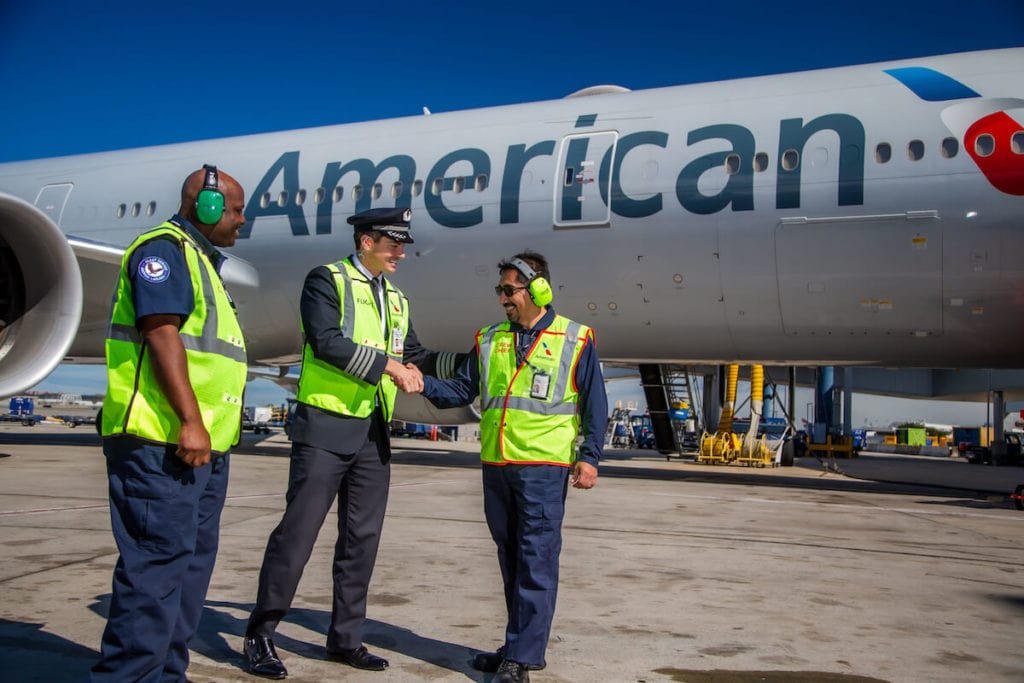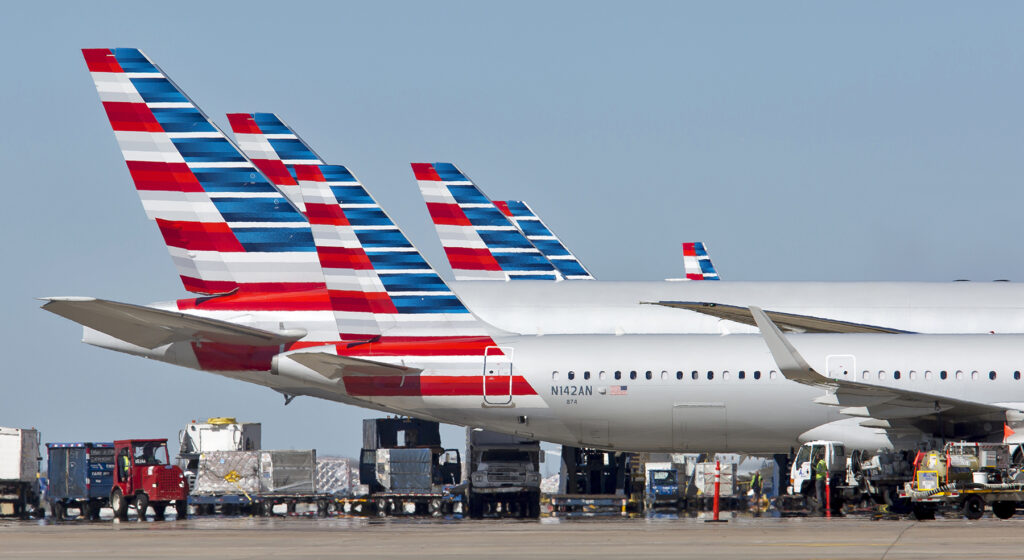[ad_1]
American Airlines pilots used staff shortages, strike threats, and competition to secure a new labor deal with immediate 21 percent pay hikes and better working conditions.
The Allied Pilots Association (APA), which represents 15,000 pilots at American Airlines, announced on Monday that 72 percent of pilots had voted to approve the new contract, with a turnout of 95 percent.

Photo: Courtesy of American Airlines
Over the four years of the contract, compensation for pilots will rise by 46 percent, including 401(k) contributions and premium pay. The deal will cost American Airlines $9.6 billion in wages and benefits, including $1.1 billion in immediate and retroactive payments, including ratification bonuses.
The contract is “unprecedented and historic,” Captain Ed Sicher, president of the Allied Pilots Association, told Reuters. But “for pilots, the biggest victory is not just the wages but the work-life stuff,” he added.
APA said that quality of life improvements account for nearly 20 percent of the value of the new labor deal. That includes better pay when pilots are reassigned from flights, go on vacation, or are in training and boosted per diems on trips. The carrier will contribute more to life insurance policies and long-term disability and retirement benefits.
Airline staff will also have more predictable scheduling, which the union has argued will lead to more reliable service for passengers.

Photo: American Airlines gates. Courtesy of Dallas/Fort Worth International Airport
“This contract is a big first step toward restoring the wages, benefits, and work rules lost during the past two decades while our profession was under continuous assault,” Sicher said.
As the two sides negotiated in April, American Airlines pilots voted overwhelmingly to authorize strike action. The airline bowed to pressure and made concessions on working conditions and pay.
American Airlines CEO Robert Isom said, “This agreement will help American immediately expand our pilot training capacity to support under-utilized aircraft and future flying and provide our pilots with more opportunities to progress in their careers.”
According to an analysis by the Jefferies Group, U.S. pilots have been winning significant concessions from airlines, which are scrambling to fill a shortfall of around 10,000 pilots. The shortage occurred after airlines pushed many senior pilots into early retirement during the pandemic travel shutdown and saw demand rebound more quickly than anticipated. With pilot training taking months to years and the supply of flight trainers diminishing, the labor shortage is expected to last until 2027.
In March, pilots for competitor Delta Air Lines won a contract to boost their wages by 34 percent by 2026, while United pilots tentatively agreed to a deal that would hike their pay by 40% over the next four years.
[ad_2]
Source link
